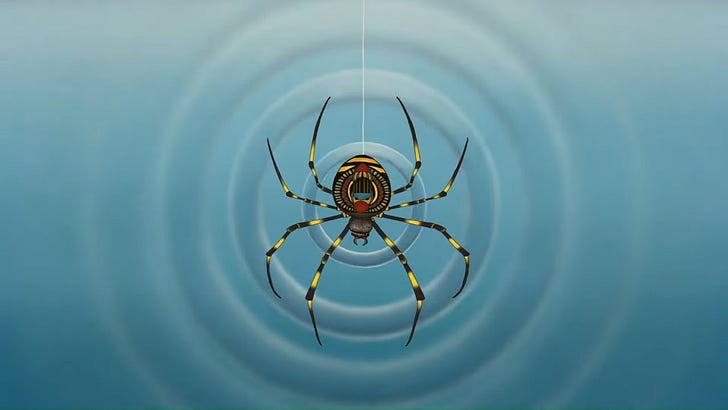To See You Through: Grief and the Grateful Dead
One of these days we'll both be fine
One of these days we’ll both be fine
To See You Through: On Grief and the Grateful Dead
Yesterday Dave and I drove back from Toronto to London where my mother is in the hospital awaiting a spot in a long-term care home. She has Alzheimer’s and can no longer live on her own.
Although it’s an emotional time, I often choose to feel no emotion so I can just get through it all—looking for appropriate homes, making decisions with my sister about her care, visiting her in the hospital with no end in sight.
As soon as any feelings come up, I shove them back down to keep my emotional state—dead inside. Although that may sound horrible, the dead inside state allows me to function.
My mother could be waiting in the hospital upwards of 70 days; that is, if she is lucky. It could, and likely will be, longer.1 She’s already been in the hospital a month and a half.
Our health care system is falling apart.2 My mother now has to pay the hospital $65 a day for the duration of her stay. We live in Canada where we are supposed to have a public health care system and pay heavy taxes for it.
Unfortunately our politicians are in process of eroding the public system with the goal of dismantling it all together. The hospital tried to force my mother back in the community where she could not live safely on her own which delayed her ability to be assessed for long-term care and caused an unnecessarily long hospital stay. Now she is expected to pay these expenses at the same time that she still has to pay for the final month’s rent on her apartment all because she is on a limited income.
A private long-term care facility costs anywhere from $8000 to $10 000 a month which none of us can afford, so she, like many in her situation, has to wait until a bed is available in one of the public or not-for-profit homes where we put her on the waitlist. These homes are excellent and often rival the private ones in terms of their care; however, there is a shortage of beds.
*
As we head into the city, Dave puts on the song “Ripple” by the Grateful Dead, a song I’ve heard a thousand times, and if I’m being completely honest, it’s a song I’ve mostly been indifferent to.
I’ve never been a huge Grateful Dead fan. The mythology that surrounded the band always annoyed me, and I considered them the epitome of Baby Boomer music (even though I grew up listening to and liking a lot of other Baby Boomer music). I don’t know why I had a hate on for the Grateful Dead—generational resentment is fickle I guess.
But this time, Dave causally mentions that the song was written when one of the band members was driving back and forth on the highway to visit his father who was dying of cancer.
“It’s a good highway song,” Dave says.
We are quiet in the car listening to “Ripple,” and I’m thinking of the new-to-me context when I suddenly wail and burst into tears.
“This song is sad!” I weep angrily and then laugh.
Taken aback by my outburst, Dave also laughs and then I alternate between laughing and crying while the song continues to play.
“Why did I cry like that?” I ask when the song ends.
“You needed to,” he says.
I looked it up, and Dave got the story and the songs a little mixed up.
“Box of Rain” was actually written by Phil Lesh and Robert Hunter when Lesh’s father was dying, which as it turns out is also a pretty fucking sad song too.
What do you want me to do
To do for you, to see you through?
A box of rain will ease the pain
And love will see you through
I guess I am now a fan.
Read more from One of these days we’ll both be fine
Kathryn Mockler is the author of Anecdotes.
Support Send My Love to Anyone
Support Send My Love to Anyone by signing up for a monthly or yearly subscription, liking this post, or sharing it
Big heartfelt thanks to all of the subscribers and contributors who make this project possible!
Connect
Bluesky | Instagram | Archive | Contributors | Subscribe | About SMLTA





Such a tough time. Dissociation is a coping mechanism but wailing and laughing is healthier. I’m glad the song did it for you.
Bon courage, Kathryn. Thirty years ago I made my own trips across the 401 from Toronto to London as my mother was dying. Music helps, especially if you can sing along.